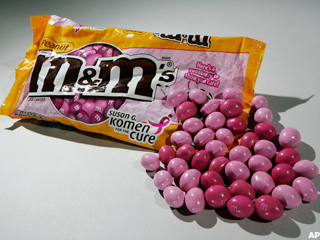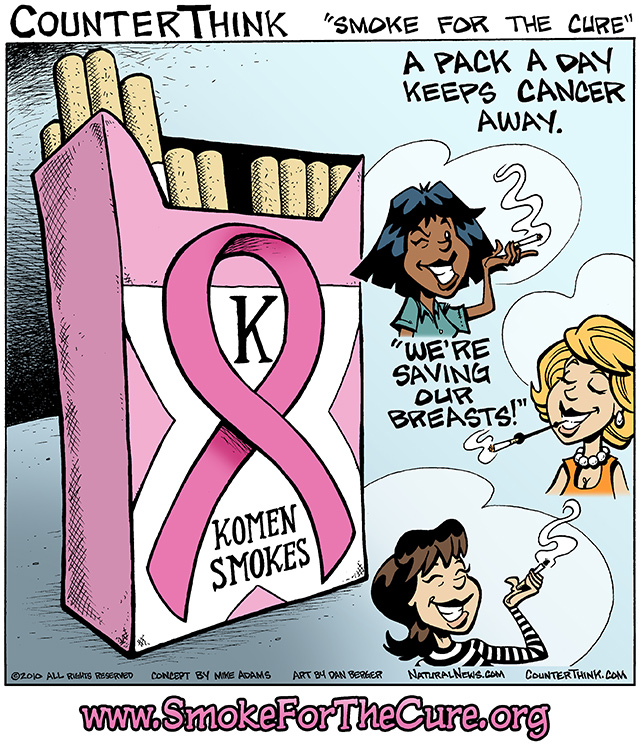 |
| Photo Source: https://www.familycircle.com/health/concerns/cancer/is-it-breast-cancer/ |
Staring up at the lump seen on your mammogram, the doctor’s words have faded into the background, you are now face to face with your own mortality, then you imagine the severing of one of your breasts. You begin to worry that even if you survive, you will be looked upon as an oddity. Possibly your appearance can be revived through reconstruction, make-up, and the reassurance of others; at least that’s what our patriarchal society makes you think.
While women confront death in the face of breast cancer, one’s attention is partitioned amongst survival, identity, desirability, and femininity. The current patriarchal society forces women with breast cancer to not only be concerned with their survival, but with their ability to uphold their image of being productive members of society through gender roles, whilst staying desirable through their outward appearance. In an attempt to make up for such felt absence of identity women rely on reconstructive surgeries or prosthetics and organizations such as Susan G. Komen where the stereotypical roles of women are further instilled.
Once a woman is able to embark on the journey of recovery being left with a portion of a breast, one, or no breasts at all, her identity is called into question due to her femininity partly being linked to this fatty tissue that once wreaked havoc on her own body. This loss of flesh not only exemplifies a survivor but reminds a woman of her loss of identity. In a patriarchal society where the identity of women is found within the stereotype of women, where appearance is in part the aspect of their life that is widely understood as their only source of value (Lorde, A., 2007, p.58).
Ms. Marcou, a breast cancer survivor herself, spoke out about her own perception on how breast cancer impacts women's sense of identity: “Individual women still tussle with their body because it's so valued in society. Every woman who goes through this will wonder about her femininity and sexuality”.
So, what is the response of women in order to regain this sense of femininity and womanhood? Women feel it is their own responsibility to stay sexy and desirable in the eyes of another, only to try and cover up the suffering and trauma that has just occurred. Survivors may purchase wigs, make-up, and prosthetics in order to regain a desirability that they feel cancer stripped from these survivors. Rather than womanhood being exemplified in the sheer strength that women withhold, it’s reduced to the sheer appearance of a woman down to the very detail of “normal’ breasts.
 |
| Photo Source: http://www.soc.ucsb.edu/sexinfo/article/mastectomy |
In a response to regain one's own sense of womanhood and femininity, women resort to reconstructive surgery and prosthetics in order to feel as though their identity is somewhat intact while their suffering remains. As breasts are represented as a symbol of womanhood, nurturing, and sexuality, rather than realizing these qualities within oneself, some women, as a result, opt for breast reconstruction or prosthetics in order to attempt to fill this void (Williams, L., 1991, December 25). “However well-meaning and under whatever guise, must be seen as damaging, for it keeps the post-mastectomy woman in a position of perpetual and secret insufficiency, infantilized and dependent for her identity upon an external definition of appearance.” (Lorde, A., 2007, p.59). The importance of this quote from Audre Lorde exemplifies how women who subject themselves to this need of a disguise, are still left to fill this void, loss of womanhood and femininity because a fake breast(s) will not rebuild one's own identity, rather this is found within oneself. In reality, such reconstructive options only feed into the patriarchal society and the illusions that without hair, breasts, etc. you are unable to remain attractive, womanly, and feminine.
On the other hand, not only are reconstructive surgeries and devices the only agents that attempt to lessen a women's identity, organizations such as the Susan G Komen have positioned themselves in a way that place women within their typical societal stereotypes. On Susan G Komen’s website, they position women as caretakers, purely heterosexual beings and represent femininity purely through the color pink, thus furthering the gender role divide. As pink has signified gender since the 1960s through apparel and toys for girls, in order to specify a gender divide between the sexes. Although the color pink has positively been used as a color to represent women, it also restrains women into the expected stereotypical role of being desirable, motherly, lady-like, sensitive, etc. Throughout this website, the color pink is overwhelmingly represented, constantly reminding women of the need to remain feminine and desirable, as though this is what is the utmost concern of those battling this life-threatening disease.
While some may disagree and note that pink is a distinct color that has represented women’s strength throughout movements, with the pairing of overwhelming patriarchal and heterosexual propaganda I argue this use of color is used with the sole purpose of representing women who fall within their assigned role (Pandey, A., 2016, July 15). This patriarchal and heterosexual propaganda can be represented through the quote: “I worry for my daughter, her friends, my mother and women everywhere. As men, we have to realize that this disease could someday affect the women in our lives”. This quote not only signifies the need for a man to speak out in order for an issue majorly affecting women to be heard; it also represents that this website purely is speaking to women with a male partner, thus silencing a large group of women who do not find themselves as heterosexual. Throughout the website, there is consistent imagery of women with male partners. Thus, when paired with pictures of women with children, this is then once again placing women in the stereotypical role of women needing to be the productive and desirable member of society through their role as mothers and caretakers. This imagery can be harmful to women’s identity while battling with breast cancer because it is specifically speaking to a certain kind of woman that fits within the gender role seen as desirable and feminine within our patriarchal society.
All in all, while a woman is battling cancer, she is forced by our patriarchal society to represent a woman that fits within her assigned gender role. Fitting within this gender role forces women to feel the need to remain/ become desirable and feminine. Organizations such as the Susan G. Komen organization largely represents such gender roles through patriarchal and heterosexual propaganda, while the cancer industry pushes women to gain their sense of identity back through an external self that can be discovered through surgeries and prosthetics. Rather than encouraging survivors to find a sense of identity that fulfills the patriarchal stereotype of women, why don’t we as a society offer other avenues in order to ease one’s suffering and trauma without relying on how the patriarchal ideals of what it means to be women who are productive, feminine, and desirable?
Resources:
Lorde, A. (2007). The Cancer Journals. San Francisco, CA: Aunt Lute Books.
Pandey, A. (2016, July 15). Pink And Blue: The Colours Of Gender Stereotyping. Retrieved December 09, 2018, from https://www.huffingtonpost.in/aradhana-pandey/pink-and-blue-the-myth-be_b_9191840.html
Susan G. Komen. (n.d.). Retrieved December 08, 2018, from https://ww5.komen.org/
Williams, L. (1991, December 25). Women Who Lose Breasts Define Their Own Femininity. Retrieved December 09, 2018, from https://www.nytimes.com/1991/12/25/health/women-who-lose-breasts-define-their-own-femininity.html








